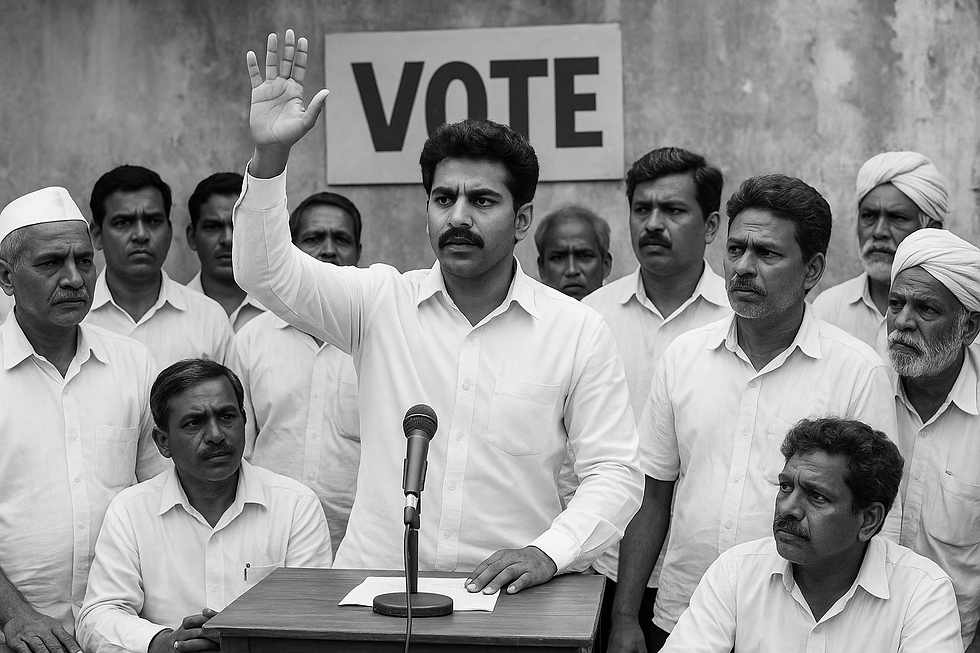
Supreme Court Upholds Democratic Integrity: Arvind Kejriwal's Interim Bail and the 'Vis Viva' of Democracy
- Chintan Shah

- May 13, 2024
- 4 min read
Updated: May 15, 2024
Summary of the Judgement
Case Name: Arvind Kejriwal v. Directorate of Enforcement
Date: 10 May 2024
Judges: Honorable Justice Sanjiv Khanna, Honorable Justice Dipankar Datta
Acts and Sections Involved: Prevention of Money Laundering Act, 2002 (Section 19) Indian Penal Code, 1860 (Sections 120-B, 447A) Prevention of Corruption Act, 1988 (Section 7)
Cited Judgements: Mukesh Kishanpuria v. State of West Bengal Sunil Fulchand Shah v. Union of India, Dadu @ Tulsidas v. State of Maharashtra Anukul Chandra Pradhan v. Union of India K. Ananda Nambiar v. Chief Secretary to the Government of Madras State of Maharashtra v. Anand Chintaman Dighe Siba Shankar Das @ Pintu v. State of Odisha
Introduction
In a pivotal ruling, the Supreme Court of India issued a judgment in the case of Arvind Kejriwal v. Directorate of Enforcement, a decision that significantly impacts the jurisprudence of interim bail, particularly in the context of elections and the involvement of public figures in democratic processes. Presided over by Honorable Justice Sanjiv Khanna and Honorable Justice Dipankar Datta, the judgment adeptly navigates the intricate legal and democratic principles at stake, addressing both the specific nuances of the appellant's legal challenge and broader issues concerning justice and electoral integrity.
The Case and Its Context
Arvind Kejriwal, the Chief Minister of Delhi and a prominent political figure, faced legal challenges following allegations of money laundering, resulting in his arrest on March 21, 2024. The proceedings in the trial court and the High Court of Delhi upheld his detention under the stringent conditions of the Prevention of Money Laundering Act, 2002. Central to Kejriwal’s appeal was the interpretation and application of Section 19 of the Act, juxtaposed with the constitutional provisions safeguarding personal liberty under Article 21.
Importance of the Decision
The court's decision transcends the individual case of Kejriwal, touching upon the essential democratic principle that electoral participation is a critical element of a functioning democracy. The decision to grant bail was heavily influenced by the ongoing general elections, reflecting the judiciary's acute awareness of the political context and its implications for fairness and democratic governance.
Judicial Examination of Electoral Integrity
The Supreme Court's deliberation focused on whether the circumstances justified Kejriwal’s continued detention, especially during the Lok Sabha elections. A pivotal aspect of the judgment was the court's perspective on the role of elections in a democracy, eloquently described as the "vis viva" or life force of a democratic system. This notion highlights the critical importance of active political participation, an element deemed essential, particularly when the electoral prospects of a political party could be adversely affected by the absence of its leader.
Legal Analysis
Key Legal Considerations
Acceptance of Interim Bail: The Supreme Court's decision to grant interim bail was heavily influenced by the ongoing electoral process. The court emphasized the importance of ensuring that elected officials are able to participate in elections, which are fundamental to democratic processes. This stance was supported by the principle that denying bail could undermine the electoral rights of the individual and, by extension, the electorate's right to be represented by their chosen candidate.
Conditions Imposed: Reflecting the judiciary's cautious approach, the conditions imposed on Kejriwal's bail were stringent. He was prohibited from visiting the Chief Minister's office and interacting with witnesses, ensuring that his temporary release did not compromise the integrity of the ongoing legal proceedings.
Precedents and Principles of Judicial Discretion
The judgment referenced prior decisions, such as Mukesh Kishanpuria v. State of West Bengal and Sunil Fulchand Shah v. Union of India, to elaborate on the judiciary's discretion regarding bail and temporary release. The court underscored that interim bail could be granted under compelling circumstances, reinforcing this principle with the current decision. This doctrine supports the judiciary’s capacity to balance legal proceedings with the fundamental tenets of democratic participation.
Public and Legal Community's Response
The decision has garnered attention for its potential to set precedents in how courts handle cases involving politicians during elections. Legal experts and the public alike have debated the implications of this decision, highlighting its importance in future legal and electoral contexts.
Analysis of the Prosecution's Arguments
The prosecution argued against the grant of interim bail, citing Kejriwal's non-appearance for notices. However, the court weighed this against Kejriwal’s clean criminal record and the ongoing legal review of his arrest's legality. This balanced approach by the judiciary plays a crucial role in ensuring that electoral processes are not disproportionately affected by allegations that have yet to be proven, thus maintaining the sanctity of democratic institutions.
Significance and Implications of the Judgment
This judgment is pivotal not only because it sets a precedent for future cases involving political figures but also because it highlights the judiciary's vigilant role in safeguarding the processes that underpin democratic governance.
The court's decision emphasizes the importance of considering the unique circumstances of each case, affirming that "To ignore the peculiarities associated with the person in question and the surrounding circumstances would be iniquitous and wrong."
Conclusion
The Supreme Court's decision in Arvind Kejriwal v. Directorate of Enforcement is a testament to the sophisticated understanding of the intersection between law and democratic values. Through this judgment, the court has navigated the complex interplay of law, politics, and individual rights, reaffirming its dedication to uphold the constitutional mandate amid challenging and intricate circumstances. Ultimately, this decision transcends the immediate context of interim bail for a political leader, reinforcing the foundational principles of democratic fairness and judicial prudence.



Comments